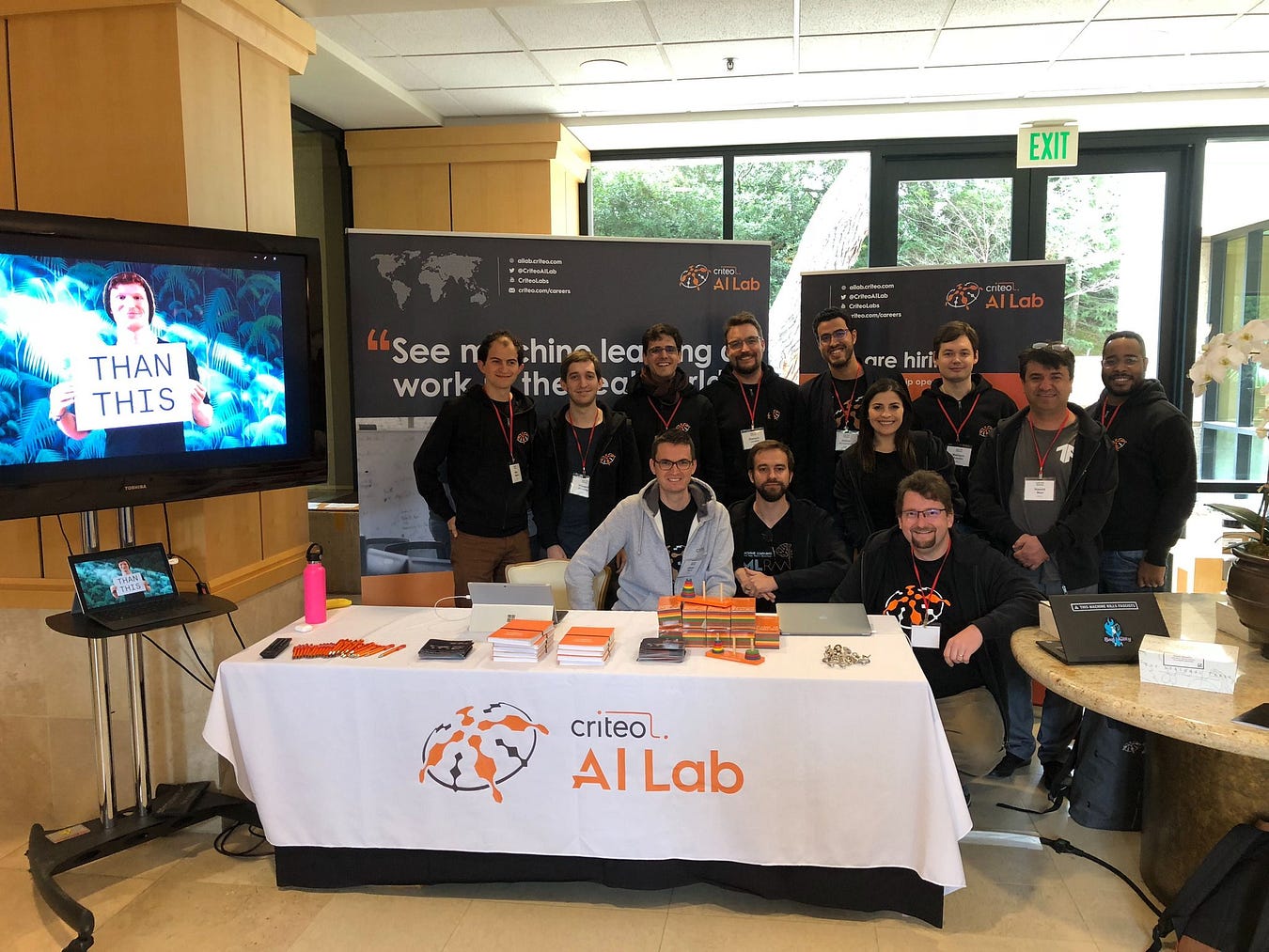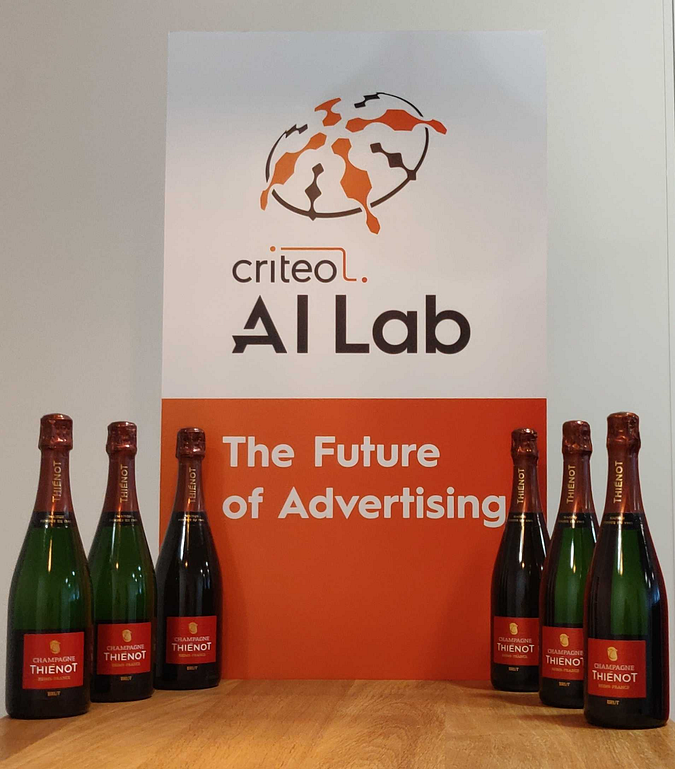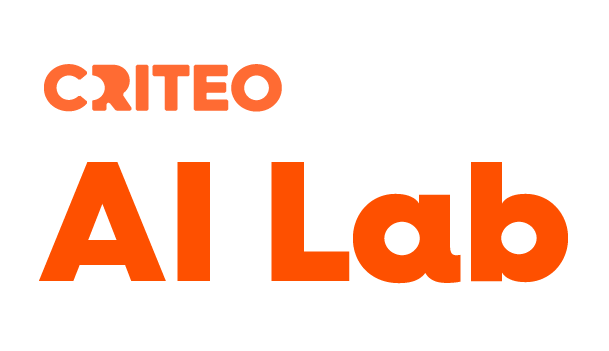SysML 2019 just ended and it is hard to get back to work, given how awesome these two days were. Criteo AI Lab was sponsoring this event, and we had a nice little booth giving away awesome gadgets to play against Criteos (it was hard to beat the speed of Romain Lerallut for solving the towers of Hanoi or match the deftness of Renaud Bauvin for launching our Criteo spinning tops).

We were impressed by the overall level of the presentations, but some stood out a bit and we wish to acknowledge them by giving out some prizes:
The prize for “ML is science. Really.” goes jointly to:
- Ofer Dekel from Microsoft for his keynote on Compiling AI for the Edge(video). He reminded everyone that trade-offs between speed and accuracy should be at least plotted on a graph to identify a Pareto front, and compare with what others have already achieved, and
- SysML organizers (video) for putting in place a voluntary Artifact Evaluation process to ensure that paper results are indeed reproducible.
The prize for “ML is software engineering too. Really” goes jointly to
- Cedric Renggli (ETH Zurich) for his talk Continuous Integration of Machine Learning Models with ease.ml/ci: Towards a Rigorous Yet Practical Treatment(video). Cedric is discussing a tool to perform continuous integration on models and ensuring that they remain under control.
- Martin Zinkevich (Google) for his talk Data Validation for Machine Learning(video). Martin reminded us that we never know our data enough and that we should thus ensure that we control what we give to our models to avoid the usual ‘garbage in, garbage out’
The prize for “Meta-Optimization. Everywhere” is awarded to Zhihao Jia, a PhD candidate at Stanford University for his two presentations Beyond Data and Model Parallelism for Deep Neural Networks (video) and Optimizing DNN Computation with Relaxed Graph Substitutions(video). He applied optimization to either optimize model-parallelism in distributed learning in his first talk or model inference in his second talk. A very nice meta-model was shown in the first presentation which gives very interesting results for learning time prediction.
The prize “Better safe than sorry” goes to Georgios Damaskinos (EPFL) for his presentation AGGREGATHOR: Byzantine Machine Learning via Robust Gradient Aggregation(video). He presented his library modifying TensorFlow to make its SGD synchronous implementation resistant to attacks from a limited number of workers sending incorrect gradients. This is especially important for learning occurring in a federation context.
The prize “Don’t do evil” is awarded to Maya Gupta (Google AI) for her keynote How Do We Make AI Fair? (video). Maya reminded us that putting ML systems in production is not always harmless. Ensuring fairness is thus our duty.
The prize “Inception2” is awarded to Dan Moldovan for AutoGraph: Imperative-style Coding with Graph-based Performance (video). He and his team propose a staged meta-programming approach to transpile familiar imperative style Python code defining a ML model into a scalable graph-based representation such as TensorFlow which allow whole model optimizations. This promise to improve the trade-off ease of development versus scalability and efficiency of complex modern ML models. It will soon be up to the ML engineer not to to get lost in all those meta-layer of the ML dream

The winners are more than welcome to our offices (be it in Paris, Grenoble, Ann Arbor or Palo Alto) to give a talk and claim their prize… the bottles are already there waiting for them.
Missed the conference? No problem: the conference was live-streamed and recorded. The pointers to the videos can be found on the Schedule page of the event.
We finally take this opportunity to thank the whole SysML organizing team and the speakers for the perfect delivery.
See you next year for SysML 2020!
Oops… one more thing: if those topics interest you… Criteo is hiring!
Authors/Contributors: Aloïs Bissuel, Anthony Truchet, Oleksandr Pryimak, Renaud Bauvin, Romain Lerallut


